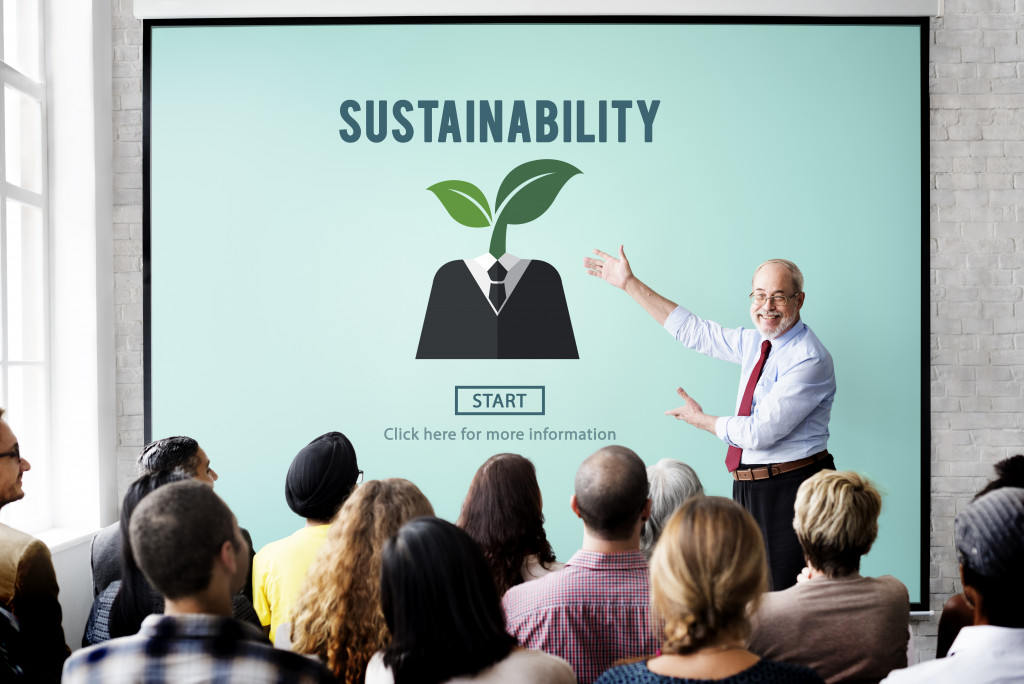As an entrepreneur, you want to create a sustainable business. You want to build something that will last and ensure your employees are trained to help you achieve that goal.
In fact, there is a growing need for productive discussions on sustainability. According to a Yale Program on Climate Communication poll, only 36% of Americans report discussing the environmental consequences of climate change. To build something that will last, you need a team of people who are trained in how to help your company achieve its goals. It’s important for entrepreneurs like yourself—those looking towards the future with an eye on sustainability—to start discussions surrounding this topic now, so they can be prepared when it becomes necessary later down the road or even just upfront.
Here are five ways to train your employees for a sustainable business:
Teach Them How To Be Conscientious Consumers
The first step in teaching your employees how to be part of a sustainable business is to teach them how to be conscientious consumers. What does that mean? It means teaching them to think about the long-term impact of their consumption habits. It means showing them how their consumption choices can either help or hurt the environment. It means being mindful of the products they purchase and the packaging those products come in.
You can teach your employees how to be conscientious consumers by being mindful of the products you purchase for your office and encouraging them to buy sustainable products when they’re shopping for themselves. You can also host educational events or workshops on sustainability and green living.
The goal is to educate your employees on the importance of being conscientious consumers, so they can make informed choices when it comes to their consumption habits.
Point Out the Main Energy Offenders
The main energy offenders are the activities or products that have the biggest negative impact on the environment. They include air travel, driving a gas-powered car, and eating meat. In the office, the main energy offenders are usually the biggest consumers of electricity. Inefficient lighting, computers, and office equipment are often the biggest offenders.
One way to address the issue is by investing in energy-efficient lighting. It is estimated that going completely LED-lighted may save you up to 75% on your lighting energy use while turning off lights when they are not in use can save you an additional 10% to 40%. Another way is by encouraging your employees to power down their computers and other electronics when they’re not in use.
To train your employees for a sustainable business, you need to help them identify these main energy offenders and find ways to reduce their impact. For example, you can encourage your employees to take public transportation or carpool to work. By helping your employees identify the main energy offenders, you can make a big impact on your company’s carbon footprint.
Teach Them How To Reduce Their Carbon Footprint
In addition to teaching employees about the main offenders of climate change, you should also teach them how to reduce their carbon footprint. A carbon footprint is basically a measure of the amount of carbon dioxide (CO2) a person or organization emits into the atmosphere.
There are many ways to reduce your carbon footprint, and it’s important for employees to know about them so that they can make informed choices when it comes to reducing their impact on the environment. Some simple ways to reduce your carbon footprint include walking or biking instead of driving, turning off electronics when they’re not in use, and composting organic waste instead of throwing it away.
Teaching employees how to reduce their carbon footprint is important in training them for a sustainable business. By reducing their CO2 emissions, employees can help reduce the impact that their company has on the environment.

Inform Them of Government Policies and Initiatives
Governments around the world are increasingly implementing policies to encourage businesses to adopt more sustainable practices. The United Kingdom, for example, has developed the Clean Growth Strategy, which covers policies and proposals ranging from green finance, building energy efficiency, low carbon heating, electric vehicles, and renewable technology. These policies aim to boost the economy and productivity across the country while protecting the climate and environment for a sustainable future.
Employees need to be aware of government policies on environmental protection to understand how their actions within the workplace can impact the environment. By learning about these policies, employees can make more informed decisions about reducing their environmental impact. They can also be advocates for environmentally friendly policies within their company. Informing employees of government policies on environmental protection is one way to help create a more sustainable business.
Give Them Opportunities To Take Action
The best way to learn is by doing, and the best way to teach people about sustainability is by giving them opportunities to take action. What does that mean? It means giving them opportunities to learn about sustainability through hands-on experiences.
You can give your employees opportunities to take action by hosting sustainability-themed competitions or challenges. You can also provide them with opportunities to volunteer their time at local green organizations or eco-friendly businesses.
The goal is to help your employees learn about sustainability through hands-on experiences, so they can put what they learn into practice.
Key Takeaways
Sustainability is a complex topic, and there’s no one-size-fits-all solution when it comes to training employees for a sustainable business. However, you can create a more sustainable workplace by teaching employees about the main energy offenders, how to reduce their carbon footprint, and government policies on environmental protection. In addition, giving employees opportunities to take action will help them learn about sustainability through hands-on experiences. What are some of the ways that your company promotes sustainability?
